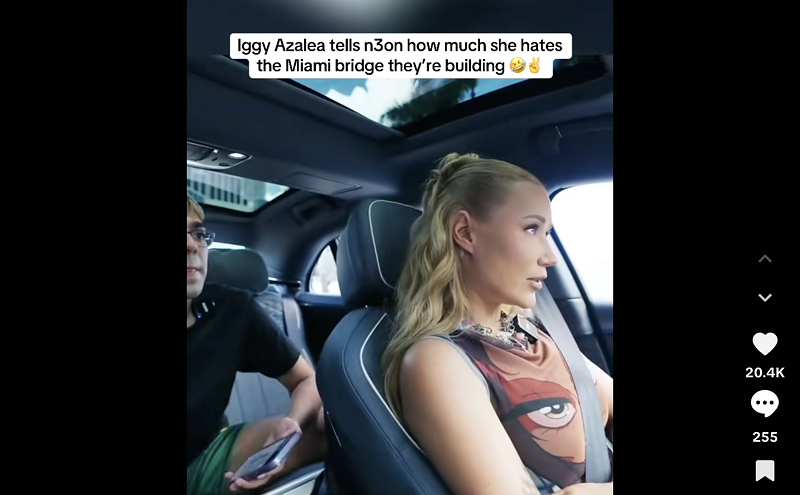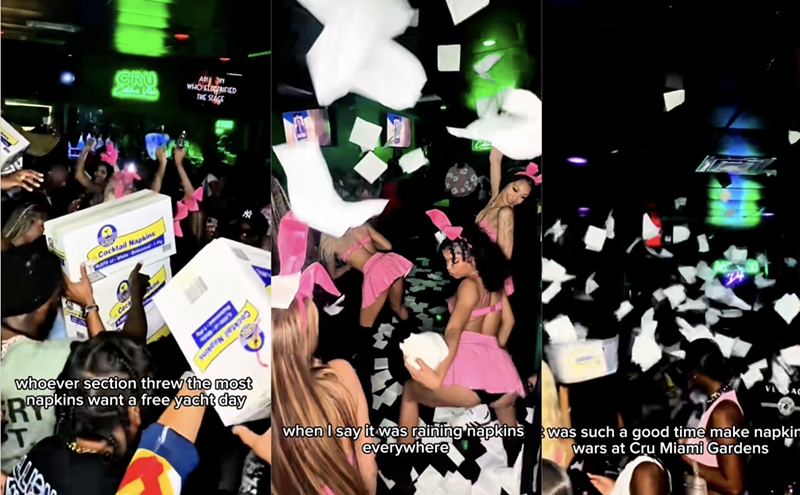Adam Szymkowicz's Nerve needs a new name. Its two characters are notable for many things — guilelessness, instability, horniness, and especially awkwardness — but their nerve is notable only by its absence. Elliot and Susan are a couple who meet on the Internet and then enjoy a first, fumbling date. Conceptually this is similar to John Patrick Shanley's Danny and the Deep Blue Sea, a disturbing play in which two terminally troubled people meet in a bar and begin a relationship. But Danny is violent: The would-be lovers hit, choke, curse, and vent all of their pent-up rage at each other. None of this happens in Nerve, which is nevertheless more brutal in a psychological way.
This is because Nerve's protagonists are not only more profoundly unbalanced than those in Danny, but also arguably the most fucked-up people ever to swap spit on a stage. All the action plays out in a bar where Elliot and Susan have retired after catching a Michael Moore flick. Within 10 seconds of entering the place — the first such place they've ever visited together and, one may assume, where they are having the first real conversation of their relationship — they creep each other out. Elliot says things such as "[Being nervous] is normal. Especially before we've even had a first kiss," and follows it up quickly with "I think we can agree the objective on any first date is getting to that first kiss" — a declaration that itself is followed by no less than three apropos-of-nothing returns to the subject of first kissing.
And Susan doesn't even notice that Elliot is being weird. Perhaps this is because she's a little weird herself. She is, you figure out pretty quickly, a depressive, a cutter, and a probable serial monogamist with a history of dating controlling men. These traits define her so completely that nothing she does during Nerve's 70-minute run is free from their influence; her childhood, interests, and peccadilloes (aside from the cutting thing) are unmentioned and entirely beside the point. With one exception: In this production, the characters' fantasy lives are occasionally played out onstage. And during those moments — say, when Elliot goes to the bathroom or when Susan endures a moment of extreme distress — lights dim, music begins, and suddenly Susan is fulfilling her childhood dream of becoming a dancer, flinging herself around the stage in an odd mélange of pidgin ballet and modern dance.
Elliot is a puppeteer — an actual puppet enthusiast — and his fantasy scene involves an intense argument with a puppet of his ex-girlfriend. The allegory is as funny as it is ham-handed: Watch as Elliot goes all to pieces at the slightest mention of one of Susan's ex-boyfriends. Watch as he tells Susan he loves her, when you know for a fact he has been too busy obsessing over his own neuroses to absorb a single detail about her. And watch as he scrambles — hustles — to find some way to make her return his affection. His naked desire for control really is funny in a way. Elliot's contortions comprise a kind of slapstick of the mind, a pratfall of the heart.
There is lots of other stuff to laugh at in Nerve, thanks largely to director John Manzelli. Most companies might take a look at Szymkowicz's script and try to play it straight, but Manzelli and the folks at Naked Stage rarely do anything this way. In Nerve, they inflate Elliot's insecurities to cartoonish proportions while tamping down Susan's occasional moments of passion until she resembles a doormat with legs.
Real-life couple Antonio and Katherine Amadeo plays Nerve's protagonists. Antonio is an impossibly limber actor who often believes that emotions are best expressed through wiggling. Here he is entirely correct: Waiting for Susan to give him some validation, he looks like nothing so much as a man who desperately needs to take a piss. Katherine has the trickier role, which she handles through some amazing juxtapositions. In the bar, she wears a blazing, fake smile so large it crinkles her whole face; it's a smile so contorted and so painful it's really a parody of a smile, communicating desperation instead of happiness. If she were to drop it for even a moment, you sense it would be replaced by something ghastly. And it's true: When Elliot is gone and the dancing begins, the smile evaporates and is replaced by nothing — just vacuity, waiting to be filled by ... what?
A man, of course. This is the biggest and most important difference between Nerve and Danny and the Deep Blue Sea. The couple in Danny is flawed and seemingly doomed, but you leave the theater sensing that, together, they might be able to heal. Their flaws are many and damaging, but they also enable themselves to understand and tolerate each other, to grab each other by the shoulders or throat and order an end to bullshit. In Nerve, Elliot and Susan will not save each other; they will poison each other.
This is not reciprocal healing, but the promise of infinite and eternal sickness. They will never call each other out or tend to hurts. Without the hurts, they might not need each other at all. This is why Nerve is such an inappropriate title for the piece. It should be called Repetition. From the play's first moments, you know Elliot and Susan have done this before and will do it again, and that real bravery would come from walking away. If there is any nerve in Nerve, it belongs to the audience. For as ridiculous as Elliot and Susan appear, they are also real. Everybody who leaves the theater feels a little more naked, a little more vulnerable, and at least a little frightened. And anyone who denies that is either single, stupid, or hopelessly deluded.












